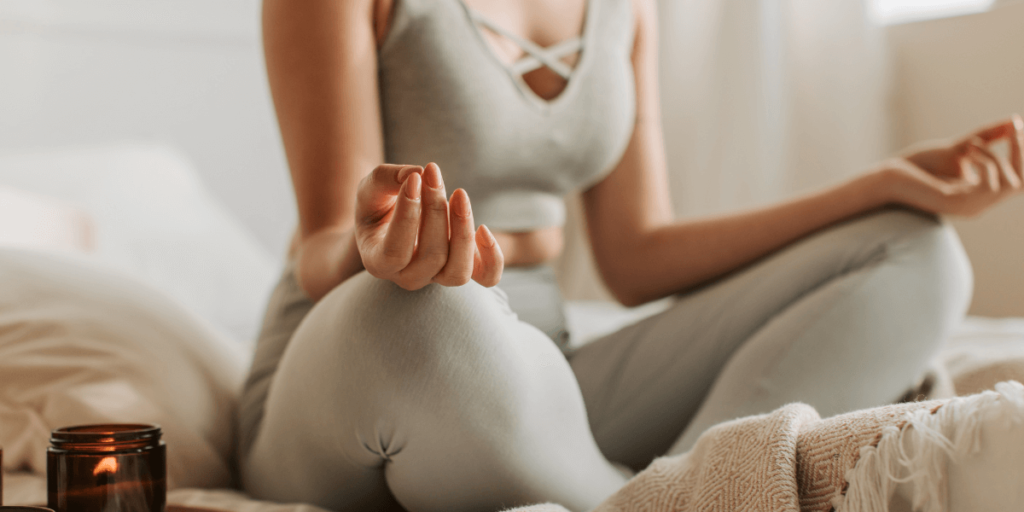Introduction to Meditation and Lifestyle
The modern world moves at a breakneck pace, leaving many people feeling overwhelmed and disconnected. Amidst the hustle and bustle, meditation emerges as a powerful tool to foster a healthy lifestyle and better habits. Meditation, an age-old practice, has gained considerable prominence in recent years for its myriad benefits. From improving mental health to enhancing physical well-being, meditation offers a holistic approach to living a balanced life.
Meditation isn’t just a practice; it’s a lifestyle choice that can redefine how we interact with the world. By delving into the practice of meditation, we begin to understand how it influences our daily habits, enables positive changes, and promotes overall well-being. Incorporating regular meditation can lead to profound transformations, fostering deeper mental clarity, reducing stress, and paving the way for healthier lifestyles.
As the science behind meditation continues to evolve, it becomes increasingly evident that this practice has significant implications for habit formation and lifestyle enhancement. Research reveals that consistent mindfulness practices can reshape the brain, creating more resilient habits that encourage a balanced life. Consequently, meditation not only aids in breaking negative patterns but also empowers individuals to adopt more positive, productive habits.
To fully appreciate the scope of meditation’s impact, it’s imperative to explore various facets, including the science behind habit formation, strategies for encouraging positive habits, and practical steps for integrating meditation into daily routines. Delving into these aspects will offer a comprehensive understanding of how meditation can serve as a cornerstone for a healthy, fulfilling lifestyle.
The Science Behind Habit Formation
Habit formation is a complex yet fascinating area of study that delves into the neurological and psychological mechanisms that govern our routines and behaviors. The brain’s plasticity plays a critical role in forming and altering habits as it is the basis upon which repeated behaviors become automatic. Meditation, a practice backed by science, demonstrates significant influence over these neuroplastic changes, aiding the formation of healthier habits.
Research shows that consistent meditation practice can lead to structural changes in the brain. According to studies, regular meditation strengthens the prefrontal cortex, the area responsible for planning, decision-making, and moderating social behavior. This enhancement allows for better control over impulsive actions, making it easier to form and maintain positive habits. In essence, meditation rewires the brain for resilience and adaptability.
Biochemically, meditation impacts the production of feel-good hormones like serotonin and dopamine. These neurotransmitters are crucial in the reinforcement of habits, making positive behaviors more rewarding and easier to repeat. When mindfulness practices elevate these hormone levels, it becomes inherently more satisfying to engage in healthy behaviors, thus reinforcing them over time.
The science of habit formation also emphasizes the importance of consistency and repetition. Similar to strengthening muscles through regular exercise, forming new habits requires repeated and deliberate practice. Meditation fits seamlessly into this framework by encouraging a mindfulness approach to habit-building, allowing individuals to focus intently on their personal goals and the specific steps needed to achieve them.
Mental Clarity and Decision-Making
One of the most profound benefits of meditation is the enhancement of mental clarity and improved decision-making capabilities. In our fast-paced world, it’s often challenging to find mental space to think clearly and make informed decisions. This mental fog can lead to reactive, rather than proactive, behaviors that undermine a healthy lifestyle.
Meditation offers a sanctuary of calm and focus that helps clear away mental clutter. When practiced regularly, meditation strengthens the mind’s ability to concentrate, manage stress, and maintain emotional balance. This improved mental clarity allows individuals to approach decisions with a clear, focused mind, rather than one clouded by stress and anxiety. Essentially, meditation equips individuals with the mental tools to evaluate situations more objectively and make better choices.
By dedicating time to mindfulness, one becomes more attuned to the subtleties of their thoughts and emotions. This self-awareness contributes significantly to better decision-making, as individuals can recognize and address negative patterns before they spiral out of control. Instead of reacting impulsively, a person who meditates regularly can take a step back to assess the situation and make a conscious, considered choice.
Moreover, meditation fosters a state of present-moment awareness, which is pivotal for effective decision-making. Being fully present allows individuals to meticulously evaluate the options at hand, weighing the pros and cons of each potential decision. This level of attentive deliberation reduces the likelihood of making rash decisions and increases the chances of achieving desired outcomes.
Reducing Negative Behaviors Through Mindfulness
Negative behaviors can significantly hinder efforts to maintain a healthy lifestyle. These behaviors, whether they are rooted in addiction, stress, or poor coping mechanisms, can create barriers to achieving overall well-being. Meditation, specifically mindfulness meditation, has shown great promise in addressing and reducing these negative behaviors.
Mindfulness meditation encourages individuals to observe their thoughts and feelings without judgment. This non-reactive observation is key to breaking the cycle of negative behaviors. When one can recognize the onset of harmful habits, it becomes possible to intervene in the cycle and choose alternative, healthier behaviors. This awareness is the first step in reducing negative patterns that detract from a healthy lifestyle.
For example, consider the common struggle with stress-induced eating or smoking. Through mindfulness meditation, individuals can become more aware of stress triggers and their habitual responses. Instead of immediately reaching for a snack or a cigarette, they can use mindfulness techniques to process these emotions differently. Over time, this mindful approach can significantly reduce reliance on these harmful behaviors.
Furthermore, mindfulness meditation has been shown to lower levels of cortisol, the stress hormone that often drives negative behaviors. By reducing physiological stress, mindfulness creates a more balanced internal environment. This balance is conducive to making healthier lifestyle choices and steering clear of behaviors that contribute to long-term stress or health issues.
Encouraging Positive Habits
Beyond reducing negative behaviors, meditation is instrumental in encouraging positive habits that contribute to a healthy lifestyle. Positive habits, such as regular exercise, healthy eating, and adequate sleep, are foundational to well-being, and meditation can play a crucial role in their establishment and maintenance.
A key aspect of meditation’s influence on positive habits is the development of intrinsic motivation. Unlike extrinsic motivators, such as rewards or punishments, intrinsic motivation is driven by internal satisfaction and personal fulfillment. Meditation fosters a deep connection with oneself, enhancing the desire to engage in activities that nurture and support well-being.
Additionally, meditation can improve self-discipline and willpower, essential traits for forming and sustaining positive habits. Regular meditation practice strengthens the brain regions associated with self-control and impulse regulation. This enhanced self-discipline helps individuals stick to their goals, whether it’s maintaining a fitness regimen, following a nutritious diet, or committing to a regular sleep schedule.
Moreover, meditation promotes a holistic view of health, encouraging individuals to view their well-being as interconnected rather than segmented. This holistic perspective makes it easier to recognize how positive habits in one area, such as physical fitness, can enhance other aspects of life, like mental health and emotional stability. As a result, individuals are more likely to cultivate and sustain a balanced and comprehensive approach to their well-being.
Meditation Techniques to Support Lifestyle Changes
Various meditation techniques can support lifestyle changes, each offering unique benefits tailored to different needs and preferences. Understanding and selecting the right techniques can significantly enhance the effectiveness of meditation in fostering a healthy lifestyle and positive habits.
One of the most accessible techniques is mindfulness meditation, which involves paying full attention to the present moment without judgment. This technique is particularly effective for reducing stress and improving focus, making it easier to align daily activities with long-term health goals. By practicing mindfulness, individuals can build a heightened awareness of their actions and choices, fostering more deliberate and health-conscious behaviors.
Transcendental Meditation (TM) is another technique that can support lifestyle changes. TM involves silently repeating a mantra to achieve a deep state of rest and relaxation. This meditative state reduces stress and anxiety while enhancing clarity and creativity. The calmness gained from TM can create a strong foundation for implementing and maintaining positive lifestyle changes, such as adopting new fitness routines or dietary habits.
Guided imagery and visualization techniques are also powerful tools for supporting lifestyle changes. These methods involve creating mental images of desired outcomes, such as visualizing oneself engaging in healthy behaviors or reaching wellness goals. Visualization can be a motivating force, helping individuals stay focused on their objectives and more confidently pursue a healthy lifestyle.
Here’s a quick comparison of different meditation techniques:
| Meditation Technique | Benefits | Best Used For |
|---|---|---|
| Mindfulness Meditation | Stress reduction, improved focus | Day-to-day mindfulness and awareness |
| Transcendental Meditation | Deep relaxation, reduced anxiety | Overcoming stress and enhancing clarity |
| Guided Imagery | Motivational reinforcement, goal setting | Visualizing goals and desired outcomes |
Building a Holistic and Balanced Routine
Building a holistic and balanced routine is essential for sustaining well-being and integrating meditation into daily life effectively. A holistic approach considers not only physical health but also mental, emotional, and spiritual well-being, creating a comprehensive lifestyle that supports overall health.
A balanced routine begins with intentional planning. Scheduling time for meditation, physical exercise, nutritious meals, and adequate rest is crucial. By designating specific times for these activities, individuals can create a consistent routine that supports their goals and reduces the likelihood of neglecting any aspect of their well-being.
Incorporating meditation daily can serve as a cornerstone of a balanced routine. Whether practiced in the morning to set a positive tone for the day or in the evening to unwind, meditation provides a steady anchor amidst daily fluctuations. This regular practice offers a moment of calm and reflection, ensuring that other healthy habits are maintained.
Creating a holistic routine also involves paying attention to the quality of each activity. For example, mindful eating, where individuals savor and fully engage with their meals, can enhance digestion and nutrition. Similarly, mindful movement, such as yoga or tai chi, integrates physical exercise with mental clarity and emotional balance. These mindful practices enrich the holistic routine, ensuring that each component contributes to overall well-being.
Success Stories and Personal Journeys
Success stories and personal journeys highlight the transformative power of meditation in fostering a healthy lifestyle and better habits. These narratives serve as both inspiration and validation, offering real-life examples of how meditation can lead to profound positive changes.
Consider the story of Jane, a busy professional who struggled with stress and unhealthy eating habits. After incorporating mindfulness meditation into her daily routine, Jane found herself more aware of her stress triggers and reactions. This awareness enabled her to make healthier food choices and adopt a more balanced lifestyle. Jane’s journey illustrates how mindfulness can break the cycle of stress-related behaviors and promote a healthier, more fulfilling life.
Another inspiring example is that of Michael, an individual who battled with substance addiction. Through the practice of Transcendental Meditation, Michael discovered a sense of inner peace and clarity that gradually reduced his dependence on substances. By focusing on his meditation practice, Michael replaced his negative behavior with a positive, nurturing habit, eventually leading to long-term sobriety and overall well-being.
Similarly, Sarah’s experience with guided imagery highlights how visualization can support lifestyle changes. After struggling to maintain a fitness routine, Sarah began visualizing herself as a healthy, active person. This mental imagery boosted her motivation and confidence, helping her consistently engage in physical activity and achieve her wellness goals. Sarah’s journey underscores the potential of meditation techniques in reinforcing positive habits and achieving desired outcomes.
Practical Steps for Incorporating Meditation
Integrating meditation into daily life need not be daunting. By following practical steps, individuals can seamlessly incorporate meditation into their routines and reap its numerous benefits for a healthy lifestyle.
- Start Small: Begin with short meditation sessions, such as 5-10 minutes a day. Gradually increase the duration as you become more comfortable with the practice. Starting small makes the habit more manageable and sustainable in the long term.
- Consistency is Key: Aim to meditate at the same time each day. Consistency helps reinforce the habit and makes it a natural part of your daily routine. Whether it’s the first thing in the morning or before bedtime, choose a time that fits your schedule.
- Create a Dedicated Space: Designate a quiet, comfortable space for meditation. This space should be free from distractions and clutter, creating a serene environment conducive to mindfulness. Having a specific spot for meditation can make the practice more inviting and consistent.
- Use Guided Meditations: For beginners, guided meditations can be extremely helpful. These sessions, led by experienced practitioners, provide structure and guidance, making it easier to stay focused and engaged.
- Incorporate Breathing Exercises: Simple breathing exercises can enhance the meditation experience. Techniques such as deep breathing or alternate nostril breathing can help calm the mind and prepare it for meditation.
- Set Realistic Goals: Establish achievable meditation goals, such as meditating three times a week or incorporating mindfulness into daily activities. Setting realistic goals prevents frustration and fosters a sense of accomplishment.
- Track Your Progress: Keep a journal to record your meditation sessions, including duration and any insights or experiences. Tracking progress can provide motivation and highlight the positive impact of meditation on your lifestyle.
Resources for Ongoing Development
Continuing to nurture and develop a meditation practice requires access to resources that provide guidance, support, and inspiration. Numerous resources can enhance meditation habits, promote well-being, and support positive changes in lifestyle.
Books
- “The Miracle of Mindfulness” by Thich Nhat Hanh: This classic book provides practical advice on integrating mindfulness into daily life.
- “Meditation for Beginners” by Jack Kornfield: An excellent resource for those new to meditation, offering step-by-step instructions.
- “The Power of Now” by Eckhart Tolle: A transformative read that highlights the importance of living in the present moment.
Apps
- Headspace: A user-friendly app offering guided meditation sessions for various needs, from stress reduction to sleep improvement.
- Calm: Provides a wide range of meditation practices, including mindfulness, sleep stories, and breathing exercises.
- Insight Timer: Features thousands of free meditations and talks from renowned teachers, making it suitable for all skill levels.
Online Courses
- Mindful Schools: Offers online courses designed to teach mindfulness practices to educators, parents, and adults.
- Coursera: Provides courses on mindfulness and meditation from top universities and institutions.
- Udemy: Hosts numerous affordable courses on meditation techniques, mindfulness, and stress reduction.
Conclusion with Encouragement and Tips
Embarking on a journey toward a healthy lifestyle and better habits through meditation is a rewarding endeavor that promises profound benefits. As with any significant change, persistence and patience are key. Remember that meditation is a practice, and it’s natural to experience ups and downs along the way.
Begin with small, manageable steps, incorporating meditation consistently into your routine. Celebrate your progress, no matter how small, and be kind to yourself during the process. Over time, you’ll likely find that meditation not only enhances your mental clarity and decision-making but also helps you cultivate positive habits and reduce negative behaviors.
Encouraging a holistic and balanced routine will support your meditation practice, enhancing your overall well-being. Make room for activities that bring joy, relaxation, and fulfillment into your life, and approach each day with mindfulness and intention. With continuous effort and commitment, meditation can serve as a powerful catalyst for positive change, leading you toward a healthier, more balanced lifestyle.
Recap
- Introduction: Meditation offers a holistic approach to fostering a healthy lifestyle.
- Habit Formation: Meditation rewires the brain to form and maintain positive habits.
- Mental Clarity: Regular practice enhances decision-making capabilities.
- Reducing Negative Behaviors: Mindfulness helps break harmful cycles.
- Encouraging Positive Habits: Meditation builds intrinsic motivation and self-discipline.
- Techniques: Different methods like mindfulness, TM, and visualization support lifestyle changes.
- Balanced Routine: Creating a holistic routine incorporating meditation.
- Success Stories: Real-life examples of transformative journeys through meditation.
- Practical Steps: Tips for integrating meditation into daily life.
- Resources: Books, apps, and courses for ongoing development.
FAQ
Q: How long should I meditate each day?
A: Start with 5-10 minutes and gradually increase the duration as you become more comfortable with the practice.
Q: Can meditation help with anxiety?
A: Yes, regular meditation practice can significantly reduce anxiety levels by promoting relaxation and mindfulness.
Q: What is the best time of day to meditate?
A: The best time is when you can consistently practice. Common times include early morning or before bed.
Q: Do I need a special place to meditate?
A: While a dedicated, quiet space is beneficial, you can meditate anywhere that is comfortable and free from distractions.
Q: Can meditation improve sleep?
A: Yes, meditation can promote relaxation and reduce stress, leading to better quality sleep.
Q: Is there a difference between mindfulness and meditation?
A: Mindfulness is a type of meditation focused on being present. Meditation can encompass various techniques, including mindfulness.
Q: How do I stay focused during meditation?
A: Guided meditations, focusing on your breath, and gently bringing your attention back when it wanders can help improve focus.
Q: Are there risks to meditating?
A: Meditation is generally safe, but intense sessions can bring up emotions that may require professional support. Always approach meditation gently and seek help if needed.
References
- Hanh, T. N. (1975). The Miracle of Mindfulness. Beacon Press.
- Tolle, E. (1999). The Power of Now: A Guide to Spiritual Enlightenment. New World Library.
- Kornfield, J. (1996). Meditation for Beginners. Sounds True.



